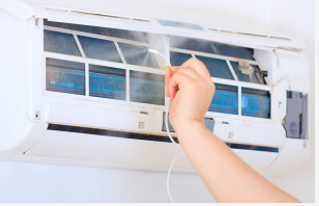
Having molds around the home is not pleasing to the eyes, but it doesn't end there. Molds can make the house smell, and cause numerous health issues when it becomes too much.
To tackle molds, it is vital to buy an air purifier with a filter from LifeSupplyUSA suited for this purpose, because not all air purifiers can mitigate mold problems. Air purifiers that can take care of molds will need to have specific components such as:
- High-efficiency particulate air (HEPA) filters
- Activated carbon
- Ionic ultraviolet germicidal irradiation (UVGI)
- Photoelectrochemical oxidation (PECO)
Each of these components plays a role in keeping molds away from the house. In this post, we will look at the components a mold management air purifier should possess. We will also look at the best air purifier filters that have one or two of these components.

Components of Air Purifier Filters for Molds
Let's look at the roles the components air filters should have:
HEPA filters
HEPA filters from LifeSupplyUSA come with a mesh designed to trap mold spores, pollen, dander, and dust. An average HEPA filter will trap particles as tiny as 0.3 micrometers. Mode spores sizes range within 3-30 micrometers. This means HEPA filters will capture mold spores from the atmosphere before they find their way to walls.
Before purchasing an air filter, ensure it meets the US Department of Energy standards, requiring filtering of 99.7 percent of particles that measure 0.3 micrometers. Some manufacturers might write "HEPA-type" but that doesn't mean HEPA. Air filters with HEPA will plainly state it without adding like or type.
Activated Carbon
Activated carbon filters from LifeSupplyUSA are designed to absorb odor-causing airborne molecules and this comes in handy when dealing with molds in homes.
Molds emit unpleasant musty smells. Having an air purifier with activated carbon ensures your visitors or family members are not uncomfortable with the smell coming from the molds. Most air purifiers come with a combination of activated carbon and HEPA filters. Together, they'll fight the airborne molecules and particulates causing molds. However, it is essential to note that activated carbon needs replacement at least every three months.
Ionic
Ionic air purifiers attract airborne pollutants to their electrically charged molecules and guide both of them to the collector plate, thereby eliminating the contaminants from the air. The problem with this is that it may end up on other surfaces in the house. It may be out of the air, but still around the room. They also produce ozone, which is a health concern.
UVGI
Ultraviolet germicidal irradiation (UVGI) air purifiers come with lamps. These UV lamps are effective in killing bacteria, viruses, and mold spores. However, the problem with UV air filters is that it takes time to come in contact with pollutants to kill them. But air passes through a purifier in seconds, which means using an UVGI air purifier might not get you the clean air you want. It is also not effective in picking up molecules that cause molds or particulate matter like dust, pollen, or pet dander.
Best Air Purifier Filters for Mitigating Mold Problems
Some of the best air purifier filters for mitigating mold problems include the following:
• LifeSupplyUSA 2 Pack Replacement 3-in-1 True HEPA Filter with Activated Carbon & Pre-Filter: This is an air purifier replacement for Pure Enrichment Pure Zone Air Cleaner Purifier Part # PEAIRFIL. It contains three components of air cleaning, which are the pre-filter, HEPA, and activated carbon. This combination is effective for solving mold problems. The pre-filter captures the dust particles while the HEPA traps pollen, dust, smoke, spores, and other allergens. The activated charcoal layer absorbs odor, gases, and chemicals. It is an excellent purifier for people suffering from different forms of allergies. To enjoy this product, remember to clean the filter every month. Also, replace after six months for maximum efficiency.
• LifeSupplyUSA Replacement True HEPA Plus 4 Carbon Filters: This is another air purifier that can handle mold spores. It contains HEPA and Carbon filters. The HEPA captures tiny airborne particles and irritants such as mold spores, dirt, pet hair, pollen, dust, lint, etc. The carbon takes care of the smoke, cooking, and spore odor. It also preserves the HEPA filters. Together, they capture 99.97% of irritants, providing fresh air for inhaling and healthier living. You can purchase a filter for extra filtering and odor control.
• Holmes air filter by LifeSupplyUSA: This air purifier filter captures about 99.97% of airborne particles. It is quick and easy to install. You can also purchase pre-filters for maximum efficiency. Remember to replace every six months.
Conclusion
Mold infected homes are inhabitable. This is why you need the best air purifier filters to keep your home free from mold and improve the air quality. LifeSupplyUSA offers some of the best home air purifier you will find around. These products are of high quality, easy to use and last for six months.





